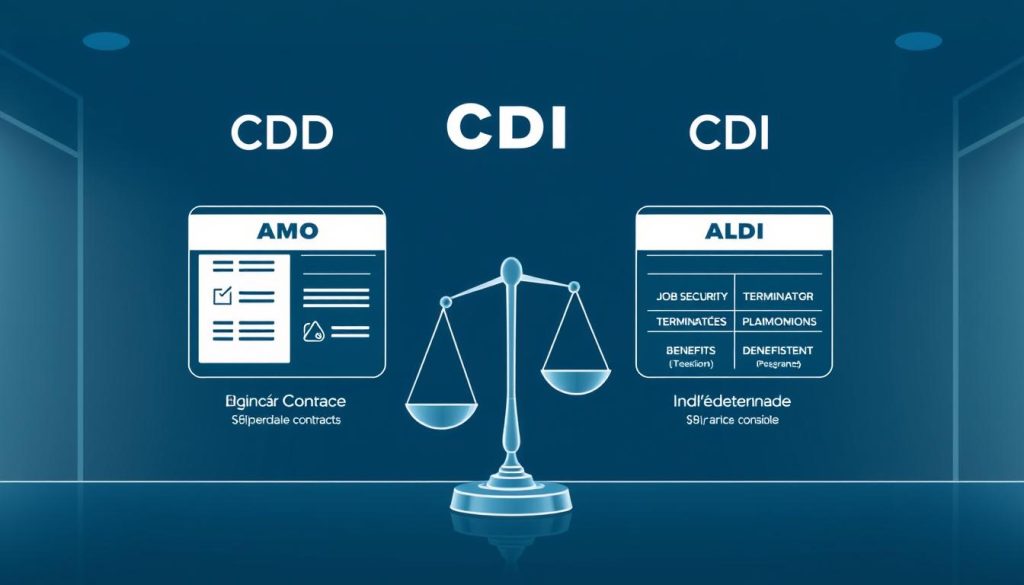Navigating a career transition can feel overwhelming, especially when balancing independence with the need for stability. Portage salarial offers a unique solution, blending the freedom of self-employment with the security of traditional employment. This hybrid model ensures you can focus on your expertise while enjoying the benefits of a structured framework.
At its core, this approach involves a tripartite relationship between you, the entreprise cliente, and the portage company. This setup guarantees a contrat travail that provides legal protections and a steady income. It’s a practical way to thrive in today’s dynamic job market without sacrificing peace of mind.
This guide will walk you through everything from legal frameworks to practical steps, ensuring you’re well-prepared to embrace this innovative model. Whether you’re a seasoned consultant or exploring new opportunities, portage salarial can be your pathway to a secure and fulfilling career.
Table of Contents
Key Takeaways
- Portage salarial combines independence with employee protections.
- It’s a secure career transition tool in today’s job market.
- Involves a tripartite relationship: consultant, portage company, and client.
- Ensures legal protections and a stable income.
- Provides professional support throughout your career journey.
Introduction to Portage Salarial
For professionals seeking flexibility, a hybrid employment model can be transformative. Portage salarial bridges the gap between traditional employment and independent consulting, offering a unique blend of autonomy and security. This model is ideal for those navigating career transitions while maintaining stability.
What is Portage Salarial?
Portage salarial is a contractual tripartite model involving the consultant, the client, and the entreprise portage. It allows professionals to work independently while enjoying the benefits of salaried employment. This setup ensures legal protections, steady income, and professional support.
The entreprise portage handles administrative tasks, including frais gestion, so consultants can focus on their expertise. This arrangement simplifies compliance with labor laws and reduces the burden of financial management.
Key Advantages of the Hybrid Model
This model combines the best of both worlds: the freedom of self-employment and the security of traditional work. Consultants retain control over their projects while benefiting from employee protections like health insurance and retirement plans.
Here’s a quick overview of the advantages:
| Benefit | Description |
|---|---|
| Autonomy | Control over projects and clients. |
| Security | Access to employee benefits and legal protections. |
| Support | Administrative and financial management by the entreprise portage. |
« Portage salarial empowers professionals to thrive in their careers without sacrificing stability. »
This model also addresses common questions about eligibility and mission acquisition. Whether you’re a freelancer, job seeker, or retiree, portage salarial provides a structured framework for success. Learn more about this hybrid employment model and how it can support your career journey.
Understanding the Legal Framework and Contractual Elements
Understanding the legal framework of employment models is crucial for ensuring security and compliance. In the context of hybrid employment, clear contractual terms and legal protections form the foundation of a successful professional relationship. This section explores the essential clauses, legal requirements, and guidelines that safeguard both the salarié and the employer.
Essential Contract Clauses and Conditions
Every contrat in this model includes specific clauses to ensure transparency and mutual protection. Key elements include:
- Mode of Remuneration: Clearly outlines how the salarié will be compensated for their prestation.
- Duration: Specifies the length of the contract, including maximum durations and renewal conditions.
- Trial Periods: Allows both parties to assess compatibility before committing long-term.
- Conditions for Rupture: Defines the terms under which the contract can be terminated.
Legal Requirements and Guidelines
The legal framework ensures that the rights of the salarié are protected. Key guidelines include:
- Compliance with the code travail, which governs employment contracts in France.
- Access to employee benefits such as health insurance and retirement plans.
- Clear documentation of responsibilities and expectations for all parties involved.
For example, the maximum duration of a contrat is often stipulated to prevent indefinite engagements without proper protections. Renewal conditions are also clearly defined to ensure fairness and transparency.
« A well-structured contract is the cornerstone of a secure and successful professional relationship. »
By adhering to these legal and contractual elements, professionals can confidently navigate their career transitions while enjoying the benefits of stability and security.
comment fonctionne le portage salarial
Exploring how this hybrid employment model operates can clarify its benefits for professionals. It combines the flexibility of independent work with the security of traditional employment, ensuring a smooth transition for those navigating career changes.
The process begins with mission acquisition. Consultants secure projects from clients, which are then managed through the portage company. This tripartite relationship ensures clarity and accountability for all parties involved.
Once a mission is secured, the consultant’s activité is managed systematically. The portage company handles administrative tasks, including invoicing and compliance, allowing the consultant to focus on their expertise.
Fee deductions are a key part of this model. The frais associated with administrative support and social contributions are calculated and deducted from the consultant’s earnings. This ensures transparency and fairness in financial arrangements.
The salaire is processed monthly, providing a steady income. This structure offers financial stability while maintaining the autonomy of independent work.
Social security plays a vital role in this model. The consultant is covered under the sécurité sociale system, ensuring access to health insurance, retirement plans, and other employee benefits. This protection is a cornerstone of the model’s appeal.
« This hybrid model ensures professionals can thrive independently while enjoying the security of traditional employment. »
Here’s a quick breakdown of the operational steps:
- Secure a mission from a client.
- The portage company manages administrative tasks.
- Fees are deducted transparently from earnings.
- Monthly salary is processed for financial stability.
- Social security benefits are provided for comprehensive protection.
This clear, step-by-step process demystifies the model, making it accessible for those new to the concept. It’s a practical solution for professionals seeking both independence and security.
Securing Your Career Transition with Portage Salarial
Transitioning to a new career path can be challenging, but a structured approach ensures both freedom and security. This hybrid model allows professionals to maintain control over their projects while enjoying the benefits of traditional employment. It’s a practical solution for those seeking stability without sacrificing independence.
Balancing Independence with Employee Benefits
One of the key advantages of this model is the ability to balance autonomy with employee protections. Consultants can choose their projects and clients, while the société handles administrative tasks. This setup ensures compliance with labor laws and reduces the burden of financial management.
Benefits like health insurance and retirement plans are included, providing a safety net for professionals. This combination of flexibility and security makes it an attractive option for those navigating career changes.
Building a Stable Income as a Consultant
Financial stability is a priority for any professional. This model ensures a steady income through structured contracts and monthly salary processing. The durée of each contract is clearly defined, with renewal conditions that safeguard income during mission gaps.
Here’s a breakdown of how financial stability is maintained:
| Element | Description |
|---|---|
| Monthly Salary | Ensures consistent income regardless of project timelines. |
| Contract Renewal | Clear conditions for extending contracts, reducing uncertainty. |
| Fee Deductions | Transparent calculations for administrative and social contributions. |
Administrative support is another critical factor. The société manages tasks like invoicing and compliance, allowing consultants to focus on their expertise. This structured gestion ensures smooth transitions between projects and long-term career growth.
« A well-structured contract and administrative support are essential for a secure and successful career transition. »
For more insights on how to thrive in this model, explore our guide on simplifying your career transition.
Step-by-Step Process for Engaging in Portage Salarial
Embarking on a new professional journey requires a clear roadmap to ensure success and stability. This hybrid model offers a structured approach, blending independence with the security of traditional employment. Here’s a detailed guide to help you navigate the process seamlessly.
Obtaining a Mission from an Entreprise Cliente
The first step is securing a mission from a client. This involves identifying opportunities that align with your expertise and professional goals. Once you’ve found a suitable project, the entreprise cliente and the portage company will formalize the agreement.
This tripartite relationship ensures clarity and accountability for all parties involved. The portage company handles administrative tasks, allowing you to focus on delivering high-quality work.
Verifying Eligibility and Contract Types
Before proceeding, it’s essential to verify your eligibility for the mission. This includes checking duration limits and predefined conditions. The portage company will guide you through this process to ensure compliance.
Next, you’ll select the appropriate contract type—either a CDD (fixed-term) or CDI (permanent). Your choice depends on the length and stability of the mission. Both options offer legal protections and employee benefits.
Executing Your Mission Effectively
Once the contract is in place, it’s time to execute your mission. Focus on delivering value to the client while adhering to the agreed-upon terms. The portage company will manage administrative tasks, including invoicing and compliance.
At the end of each mois, you’ll submit a CRA (Activity Report) detailing your work. This document is crucial for processing your salary and ensuring transparency.
« A structured process ensures professionals can thrive independently while enjoying the security of traditional employment. »
Here’s a quick overview of the steps:
- Secure a mission from a client.
- Verify eligibility and select the appropriate contract type.
- Execute the mission effectively, focusing on delivering value.
- Submit a CRA at the end of each mois for salary processing.
This clear, step-by-step process ensures a smooth transition into this hybrid model. For more insights, explore our guide on navigating your professional journey.
Comparing CDD and CDI in Portage Salarial

Choosing the right contract type is a critical decision for professionals in hybrid employment models. Whether you opt for a CDD (fixed-term contract) or a CDI (permanent contract), each has unique benefits and considerations. Understanding these differences ensures you make an informed choice that aligns with your career goals.
CDD Contract Specifics and Renewal Conditions
A CDD is ideal for short-term projects or specific missions. It has a predefined duration, typically ranging from a few months to a maximum of 18 months. Renewal conditions are strict, with limits on how many times a contract can be extended. This structure provides clarity but requires careful planning for mission gaps.
Termination conditions are also clearly defined. Both the cliente and the consultant must adhere to the agreed-upon terms, ensuring fairness and transparency. This setup is particularly useful for professionals who prefer flexibility and variety in their work.
Advantages of a CDI for Long-Term Stability
A CDI offers long-term stability, making it a popular choice for those seeking consistent income and career growth. Unlike a CDD, it does not have a predefined end date, providing greater security. However, it requires regular mission acquisition to maintain income flow.
One of the key benefits of a CDI is access to comprehensive employee benefits, including health insurance and retirement plans. This makes it an attractive option for professionals prioritizing financial security and long-term planning.
| Contract Type | Duration | Renewal Conditions | Key Benefits |
|---|---|---|---|
| CDD | Fixed-term (up to 18 months) | Limited renewals | Flexibility, clear termination terms |
| CDI | Indefinite | No renewal needed | Long-term stability, employee benefits |
« The right contract type can significantly impact your career trajectory, offering either flexibility or long-term security. »
Both contract types have their place in the hybrid employment model. A CDD is perfect for short-term affaires, while a CDI provides the stability needed for sustained career growth. Understanding these options ensures you can navigate your professional journey with confidence.
Choosing the Right Portage Salarial Company
Selecting the right partner for your hybrid employment journey is a decision that can shape your professional future. A reliable entreprise portage salarial ensures financial stability, transparent fees, and robust support systems. This choice directly impacts your sécurité and long-term success.
Evaluating Financial Stability and Fees
Financial transparency is a cornerstone of trust. When assessing a portage company, review their fee structure and ensure it aligns with your earnings. Look for clear explanations of deductions, including administrative and social contributions.
Here’s a breakdown of key financial factors to consider:
| Factor | Description |
|---|---|
| Fee Transparency | Clear breakdown of all charges and deductions. |
| Financial Health | Stability and reputation of the company. |
| Payment Processing | Timely and accurate salary disbursement. |
Support, Training, and Community Networks
Beyond finances, a strong support system is essential. A good portage company offers personalized training, helping you enhance your skills and stay competitive. They also provide access to community networks, fostering collaboration and professional growth.
Established conventions ensure service quality and regulatory compliance. These agreements safeguard your rights and provide a framework for smooth operations. For example, a well-structured convention ensures both parties understand their responsibilities.
« The right portage company not only manages your finances but also empowers your professional journey. »
Community networks play a vital role in reinforcing sécurité. They connect you with like-minded professionals, creating opportunities for mentorship and collaboration. This sense of belonging can be invaluable during your career transition.
For more insights on selecting the right partner, explore our comprehensive guide.
Managing Administrative and Financial Aspects
Effective financial management is key to thriving in a hybrid employment model. Understanding how fees are deducted and salaries are processed ensures transparency and stability. This section breaks down the essential financial elements to help you navigate this system with confidence.
Understanding Fee Deductions and Charges
Fee deductions are a critical part of this model. They include management fees and professional charges, which cover administrative support and compliance. These fees are typically calculated as a percentage of your earnings, ensuring a fair and transparent structure.
For example, a contract might itemize charges like social contributions and administrative costs. This clarity helps you understand where your money goes and ensures no hidden surprises. Always review your contract to confirm these details.
CRA Submission and Salary Processing
The Compte Rendu d’Activité (CRA) is a monthly activity report that plays a vital role in salary processing. It details your work hours, tasks, and accomplishments, ensuring accurate rémunération.
Submitting the CRA on time is crucial. Most companies process salaries multiple fois per month, providing a steady income flow. This system ensures financial stability while maintaining transparency.
Here’s a quick overview of the financial process:
- Calculate and deduct management and professional fees.
- Submit the CRA to document your monthly activities.
- Receive your salary multiple fois per month for consistent income.
« Transparent financial management is the foundation of a successful hybrid employment journey. »
By understanding these aspects, you can ensure a smooth and secure professional experience. For more insights, explore our guide on mastering financial management.
Roles and Responsibilities within the Tripartite Relationship
A successful hybrid employment model relies on clear roles and responsibilities for all parties involved. This tripartite relationship between the consultant, portage company, and client ensures smooth operations and mutual success. Each party contributes uniquely to the formation and execution of the contract, creating a structured framework for professional growth.
The Consultant’s Role
The consultant is the driving force behind the mission. They secure projects, deliver high-quality work, and ensure client satisfaction. Their responsibilities include defining project scope, managing temps, and submitting monthly activity reports. This role requires autonomy and expertise, allowing the consultant to focus on their core skills.
The Portage Company’s Role
The portage company acts as the administrative backbone. They handle contract formation, compliance, and financial management. This includes processing paiement, deducting fees, and ensuring timely salary disbursement. By managing these tasks, the portage company allows the consultant to concentrate on their mission.
The Client’s Role
The client provides the mission and defines project expectations. They collaborate with the consultant to ensure deliverables meet their needs. The client also approves the paiement structure and supports the consultant throughout the project lifecycle. This partnership ensures accountability and successful outcomes.
« Clear roles and responsibilities are the cornerstone of a successful tripartite relationship. »
Here’s a breakdown of the key responsibilities:
- Consultant: Secures missions, delivers work, and manages temps.
- Portage Company: Handles contract formation, compliance, and paiement processing.
- Client: Defines project scope and approves deliverables.
This structured approach ensures transparency and efficiency. Learn more about the tripartite relationship and how it supports your career journey.
Eligibility and Professional Profiles for Portage Salarial

Determining eligibility for a hybrid employment model is the first step toward a secure career transition. This innovative structure is designed to support professionals from diverse backgrounds, ensuring inclusivity and opportunity. Whether you’re a recent graduate or a seasoned expert, understanding the criteria helps you navigate this model effectively.
Who Can Thrive in This Model?
Eligibility for this model is based on qualifications and experience. Professionals with a diploma or equivalent certification are often preferred. However, practical experience in your field also plays a significant role. The code travail ensures these criteria are fair and transparent, providing a structured framework for all participants.
Cotisation is a key factor in determining access to benefits. These contributions cover social protections like health insurance and retirement plans. They also fund professional development opportunities, ensuring continuous growth and support.
Here’s a breakdown of the eligibility criteria:
| Criteria | Details |
|---|---|
| Qualifications | Diploma or equivalent certification. |
| Experience | Practical expertise in your field. |
| Cotisation | Social contributions for benefits and development. |
This model accommodates a wide range of professional profiles. Young graduates can gain experience while seasoned experts can leverage their skills. The entreprise portage salarial provides tailored support, helping each individual thrive in their career.
« This hybrid model ensures professionals from all backgrounds can achieve stability and growth. »
By adhering to the code travail, this model guarantees fairness and legal compliance. Whether you’re starting your career or transitioning to a new phase, this structure offers the support you need to succeed.
Strategies to Optimize Your Earnings in Portage Salarial
Maximizing your earnings in a hybrid employment model requires strategic planning and informed decision-making. By focusing on negotiation techniques and effective financial management, you can ensure a stable and rewarding professional journey. Here’s how to enhance your earning potential while maintaining the benefits of this unique model.
Negotiating Rates and Managing Prepaid Charges
Negotiating competitive rates is a critical skill in hybrid employment. Start by researching industry standards and understanding the value of your expertise. This knowledge empowers you to discuss travail portage terms confidently with clients.
Leverage the convention collective to your advantage. Familiarize yourself with specific articles that outline fair compensation terms. This understanding ensures you’re well-prepared to advocate for better rates.
Managing prepaid charges is another key aspect. These fees cover administrative and social contributions, so it’s essential to optimize their impact on your earnings. Here’s a quick guide:
- Review fee structures to ensure transparency.
- Track deductions to maintain financial clarity.
- Plan for charges to minimize their impact on your salaire.
Understanding Legal Frameworks for Better Compensation
Staying informed about legal frameworks is crucial. The code governing hybrid employment outlines rights and protections that can influence your earnings. Regularly review updates to ensure you’re leveraging the latest regulations.
For example, understanding how articles in the convention collective affect your contract can lead to more favorable terms. This knowledge strengthens your negotiating position and ensures fair compensation.
« A well-informed professional is better equipped to secure favorable terms and maximize earnings. »
By combining negotiation skills with a thorough understanding of legal frameworks, you can optimize your earnings and achieve long-term financial stability. For more insights, explore our guide on strategies for success.
Additional Insights from Industry Experts
Gaining insights from industry experts can provide valuable clarity on navigating hybrid employment models. Their experiences and recommendations offer practical guidance for professionals seeking stability and growth. Let’s explore real-world examples, evolving trends, and actionable strategies to optimize your success in this innovative framework.
Real-World Examples and Case Studies
One notable case study involves a marketing consultant who transitioned to a hybrid model. By securing a favorable statut, they gained access to employee benefits while maintaining project autonomy. Their success highlights the importance of aligning contracts with long-term career goals.
Another example features a software developer who optimized their indemnité arrangements. By negotiating competitive rates and managing prepaid charges, they maximized earnings while ensuring financial stability. These examples demonstrate the model’s adaptability to diverse professional needs.
Latest Trends and Evolving Best Practices
The hybrid employment landscape continues to evolve, with a focus on innovation and security. Experts emphasize the importance of maintaining a favorable statut to access comprehensive benefits. This ensures professionals can thrive independently while enjoying the protections of traditional employment.
Optimizing indemnité arrangements is another key trend. By understanding fee structures and negotiating rates, professionals can enhance their earning potential. Additionally, being part of a professional cadre offers networking opportunities and practical support, fostering long-term success.
« The right strategies and expert insights can transform your hybrid employment journey, ensuring both stability and growth. »
Here are some best practices to consider:
- Regularly review your statut to ensure access to benefits.
- Negotiate indemnité terms to maximize earnings.
- Engage with a professional cadre for networking and support.
For more insights on optimizing your career transition, explore our guide on fiscal advantages in hybrid employment.
Conclusion
Achieving a balance between independence and security is a common challenge for professionals. This hybrid model offers a structured solution, blending the freedom of self-employment with the stability of traditional emploi. It ensures you can focus on your expertise while enjoying essential benefits like health insurance and retirement plans.
Key aspects include contract safety, a clear legal framework, and streamlined administrative management. These elements provide peace of mind, allowing you to navigate your career transition confidently. Whether you’re starting out or seeking a new direction, this model supports long-term success in an ever-evolving job market.
For those ready to embrace this innovative approach, explore how it can enhance your professional. With the right guidance, you can achieve both financial stability and the freedom to grow.
FAQ
What is Portage Salarial?
Portage Salarial is a hybrid employment model that allows independent professionals to work as consultants while benefiting from employee status. It combines the flexibility of freelancing with the security of traditional employment.
What are the key advantages of this model?
This model offers stability through employee benefits like social security, while maintaining the freedom to choose projects. It also simplifies administrative tasks, allowing you to focus on your work.
How does the contractual framework work?
Contracts in Portage Salarial include essential clauses like mission details, duration, and payment terms. They comply with legal guidelines to ensure transparency and security for all parties involved.
How do I secure a mission with a client company?
Start by identifying a project that aligns with your skills. The portage company will then handle the contract, ensuring compliance and smooth execution of your mission.
What’s the difference between CDD and CDI in this model?
A CDD (fixed-term contract) is ideal for short-term projects, while a CDI (permanent contract) offers long-term stability. Both provide employee benefits, but the choice depends on your career goals.
How do I choose the right portage company?
Look for financial stability, transparent fee structures, and strong support services. Training opportunities and a robust professional network are also key factors to consider.
How are fees and charges managed?
The portage company deducts management fees and social charges from your earnings. The remaining amount is processed as your salary, ensuring compliance with tax regulations.
Who is eligible for Portage Salarial?
Professionals with specialized skills, such as consultants, trainers, or project managers, can thrive in this model. It’s ideal for those seeking independence without losing employee benefits.
How can I optimize my earnings?
Negotiate competitive rates with clients and manage prepaid charges effectively. Understanding your contract and fee structure will help you maximize your income.
What support can I expect from the portage company?
The company provides administrative assistance, handles payroll, and ensures compliance with labor laws. Many also offer training and networking opportunities to enhance your career growth.





